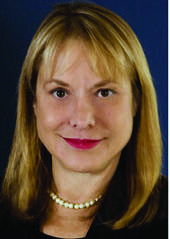It was the spring of 1979 when I got a call from a former professor offering me a job. I was fresh out of law school, clerking for Justice John Paul Stevens on the U.S. Supreme Court. The caller was Steve Breyer, who was about to take over from David Boies as chief counsel to the Judiciary Committee, chaired by Ted Kennedy. They had one opening to fill as a Special Assistant. Would I be interested in talking about it? I offered to come over to the Senate; he said they would come to see me.
We had lunch in the cafeteria of the Supreme Court like we did every day. Justice Stevens chatted about the Court. David and Steve talked about deregulation and the Senate. When we got back to the chambers, the justice took me aside: “Those are smart young fellows,” he said. “Very bright futures. I would stick with them.”
I did.
For most of the year I worked for him, Steve was sure I was going to get him fired. Or worse. In the fall of 1979, Ted Kennedy decided to run for president of the United States. For me, who watched conventions growing up the way other kids did the World Series or the Miss America pageant, the prospect of working in a presidential campaign was a dream come true. Unfortunately, this one — probably the most fun campaign I ever did — was plagued by financial and political problems, which translated into periods of no pay and no health insurance. During those periods, I would “come back” along with other lawyer/hacks to our “real” jobs on the Judiciary Committee. “You have to do real work,” Steve would energetically insist, meaning judiciary work, like working on judicial confirmations and trucking deregulation, in addition to campaign work with Jews in New Jersey.
And so I spent the better part of a year working — and also not working — for one of the smartest and most honorable men I’ve ever known.
He was a whirling dervish of activity. He had 10 things on his list at any point in time. He loved ideas. He loved the intellectual side, which you would expect of a Harvard professor, but I think he loved the politics even more. I don’t mean the Iowa of it all. Quite the contrary, Steve was determined to respect the rule dividing Senate work from campaign work, a dividing line most of the rest of us tried to pretend wasn’t there. I mean the politics of the Senate, of building a majority, winning over the Republicans, figuring out how to actually get things done at a time when almost anyone else would have given up on the prospect of doing that.
Consider the context: Not only was the chairman of the committee running for president (I know, that sounds routine) but he was running against the incumbent president of his own party, and until things went south in Iowa, as it were, he was running ahead of him in the polls. So the Senate was not only divided between Republicans and Democrats; it was, frankly, even more bitterly divided between Kennedy Democrats and Carter Democrats. You could be excused for giving up on accomplishing anything. Steve had a full agenda. He played by the rules, not only with respect to staff, but in treating each senator, Republican and Democrat, with respect.
Now I’m probably going to get in trouble with people who don’t believe in bipartisanship, but this is an important story. The ranking Republican on the Judiciary Committee was Strom Thurmond of South Carolina, an opponent of civil rights. Before the election, President Jimmy Carter, in a show of unity with Kennedy, had nominated Steve to serve on the First Circuit Court of Appeals. Then Carter lost the election, and Democrats lost the Senate. Breyer’s nomination should have been dead (think Merrick Garland to the Supreme Court). Except it wasn’t. Thurmond, in appreciation for the fairness Steve had shown as chief counsel during an intensely political year, went along with confirming his nomination to the federal bench. Fourteen years later, he was promoted to the Supreme Court, where he has served ever since.
It would never happen today. And the country is richer, wiser, better, because it did, and because of the wisdom and decency of Justice Stephen Breyer.




